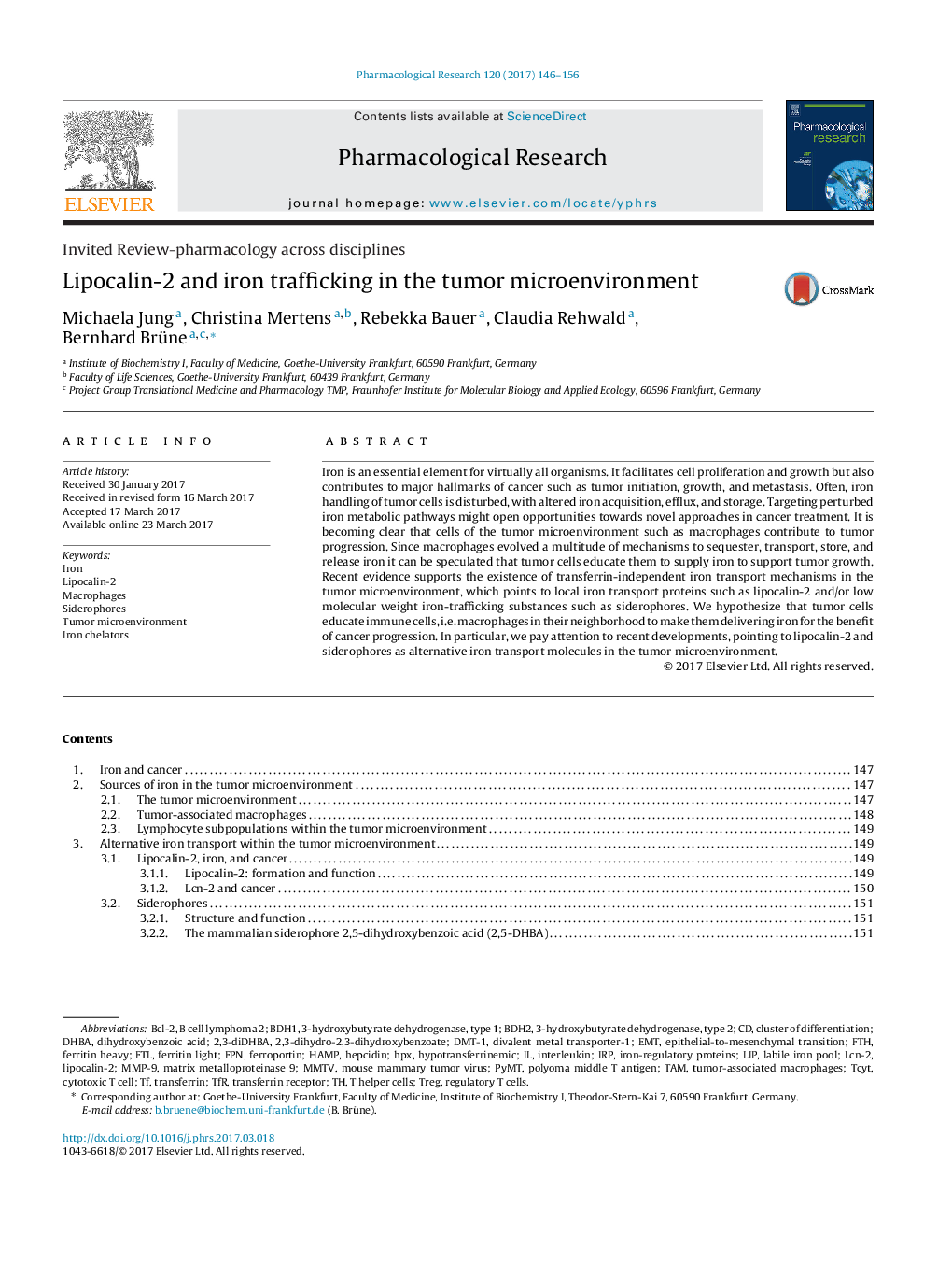| Article ID | Journal | Published Year | Pages | File Type |
|---|---|---|---|---|
| 5557235 | Pharmacological Research | 2017 | 11 Pages |
Iron is an essential element for virtually all organisms. It facilitates cell proliferation and growth but also contributes to major hallmarks of cancer such as tumor initiation, growth, and metastasis. Often, iron handling of tumor cells is disturbed, with altered iron acquisition, efflux, and storage. Targeting perturbed iron metabolic pathways might open opportunities towards novel approaches in cancer treatment. It is becoming clear that cells of the tumor microenvironment such as macrophages contribute to tumor progression. Since macrophages evolved a multitude of mechanisms to sequester, transport, store, and release iron it can be speculated that tumor cells educate them to supply iron to support tumor growth. Recent evidence supports the existence of transferrin-independent iron transport mechanisms in the tumor microenvironment, which points to local iron transport proteins such as lipocalin-2 and/or low molecular weight iron-trafficking substances such as siderophores. We hypothesize that tumor cells educate immune cells, i.e. macrophages in their neighborhood to make them delivering iron for the benefit of cancer progression. In particular, we pay attention to recent developments, pointing to lipocalin-2 and siderophores as alternative iron transport molecules in the tumor microenvironment.
Graphical abstractDownload high-res image (126KB)Download full-size image
